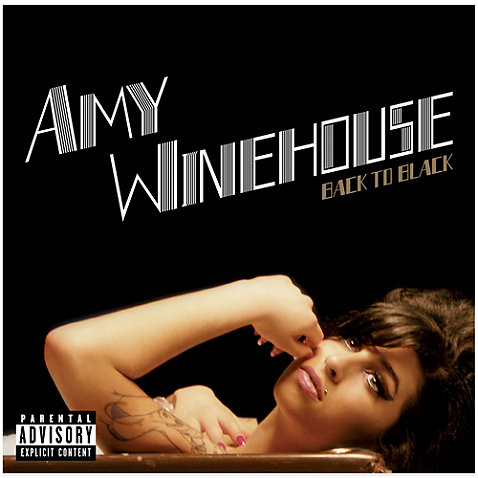Her reputation preceded her—in my case, anyway. I was vaguely aware of “Rehab” and thought it was catchy, but it seemed like a gimmicky novelty song playing on people’s nostalgia of the old girl groups of the sixties. I liked the rebelliousness of the lyrics, though as time went on it became clear that rebellious or not, she needed help.
Before long, images of her reckless behavior flooded the media. That was the Amy Winehouse I thought I knew. The druggie. The drunk. The trainwreck. People enjoyed bashing her—for how awful she looked, for how strung out she was, for her penchant for getting into trouble. Admittedly, she was an easy target. Then, in 2011, she played with fire for the last time and died as a result of alcohol poisoning. Hardly a surprise. Another musician who can’t handle their addiction bites the dust, right?
Then I heard her music.
I’m not sure how I came to hear the quote-unquote ‘real’ Amy Winehouse (by which I mean a song other than Rehab). It might’ve been because I had discovered Sharon Jones, and found out that her backing band, The Dap-Kings, played on Winehouse’s massive hit (and final) album, Back to Black. All I know is, when I pressed play on that first song (I wasn’t listening in chronological order—it was either Love is a Losing Game or You Know I’m No Good) everything else faded away. The world stopped turning for a minute while I sat entranced by the voice coming through the speakers.
“My God, THIS is Amy Winehouse?”
Granted, listening to her music posthumously gives it a haunting, verging-on-tragic edge that it might not have had when she was alive, but the fact remains her voice was simply amazing. Hearing her music, not just the one single I’d already heard, I finally understood what the big deal was all about.
Unfortunately, there are still a lot of people who don’t. A simple google search of her name returns as many links detailing her struggles with addiction as to her music itself. Where do we draw the line, between remembering someone’s contributions in the name of art rather than simply remembering the mess they made of their lives? Is it because her struggles were so public?
That’s the thing that’s gets me about her detractors—if you like music art of any kind, chances are strong that at least some of what you like was created by some truly screwed up individuals. The list of actors, writers, and musicians, etc. who are/were addicts or alcoholics is staggering. I started researching so I could list a few here, and the list was overwhelming. Everyone from heroin-addicted jazz musicians to Edgar Allen Poe to painter Thomas Kinkade, who died as a result mixing copious amounts of alcohol and valium.

Eventually, I’m confident time will take care of it. Maybe it’s already starting to. That’s one thing about art: it stands the test of time. Although it’s true that Amy found fame in the modern age of paparazzi and images of her being extremely messed up are all over the internet, people will care less and less about that as time goes on. Her music will still be there, and will still be amazing.
Even though her contribution to the world of music is relatively small at only two albums, it seems we should give her the same respect we give others who have fought and lost their own battles (Whitney Houston comes to mind). People should be defined by the art they gave the world, not the mess their personal lives may have been in the process.
And who knows, maybe she doesn’t need defending at all. Or, maybe the people out there who have no respect for her never will, and trying to defend her to those people is an exercise if futility. But if you only know the tabloid persona and you’ve never actually heard her music, forget what you think you know and give her a chance.
If you want a retro sixties vibe, stream Back to Black. If you’re more of the jazz persuasion, try her astounding debut (recorded when she was just 19 years old), Frank. If you don’t have that kind of time and just want to check out a single song or two, go back up and check out the other links. She wrote the majority of her own songs, and was a lot more than just a girl with a beehive hairdo, crazy eye makeup, and a substance abuse problem. She was an artist. Hopefully that’s how she’ll be remembered.


Legendary voice and message….mmmhmmm….missing her.
A shame we have so little of her music to enjoy.
Great way to start your “In defense of…” series! 🙂